See related article:
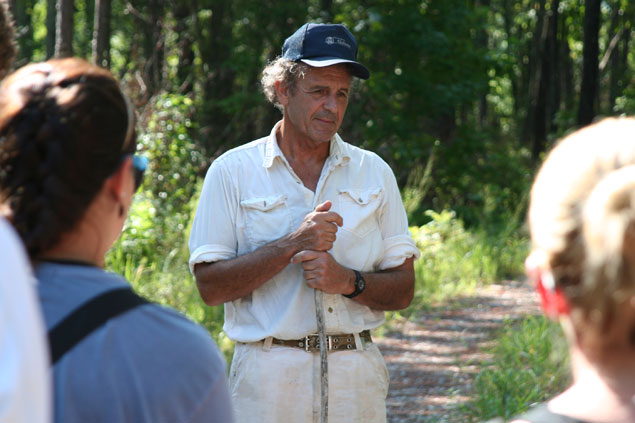
Photo by Christine Forrest, except where indicated
Dr. Doug Phillips has been acting as public television viewers’ virtual guide to his state for almost 30 years on “Discovering Alabama.” Last summer he led a group of educators and college students into the forest during a University of Alabama weekend science course.
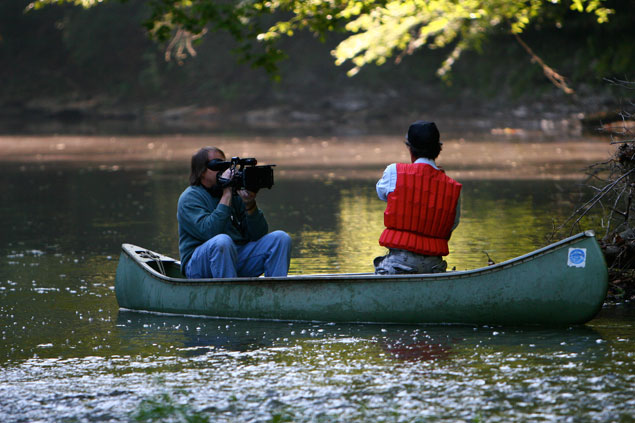
Photo by Lance Holloway
“Discovering Alabama” cameraman Mark Harper tapes Phillips canoeing the Flint River for a 2007 episode. “We work well together,” Phillips says of his team. “We don’t have to talk to communicate. That’s rare."
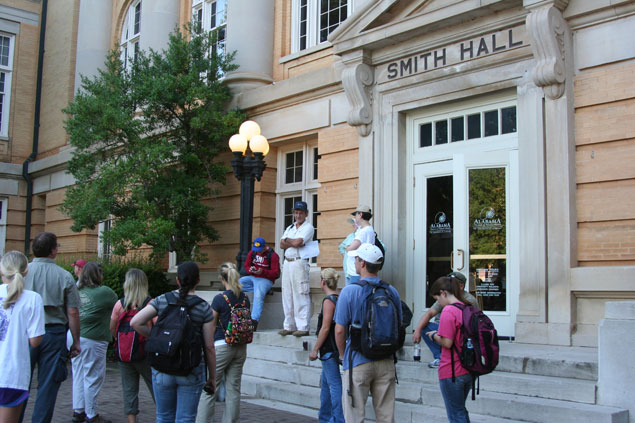
Discovering Alabama Ecology Weekend Science Program students meet at the steps of Smith Hall at the University of Alabama, waiting to find out where Phillips will lead them. “You just bring your lifetime experience and all the places you know, and just look in your students’ eyes and decide what they need on that day,” says Phillips, center, who decides to take them to Moundville.
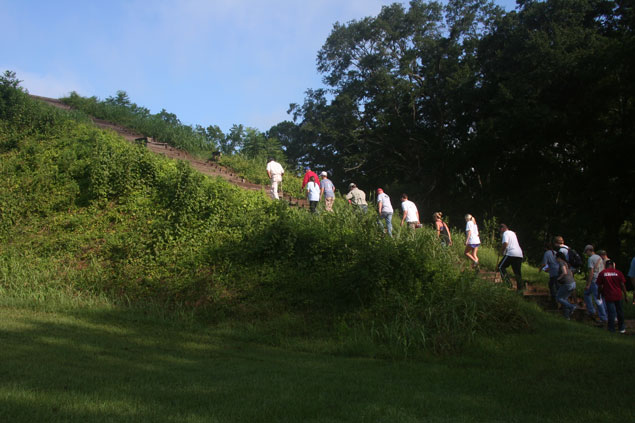
Phillips leads his students up almost six stories to the top of the highest mound at Moundville Archaeological Park, a 1,000-year-old Native American site south of Tuscaloosa.
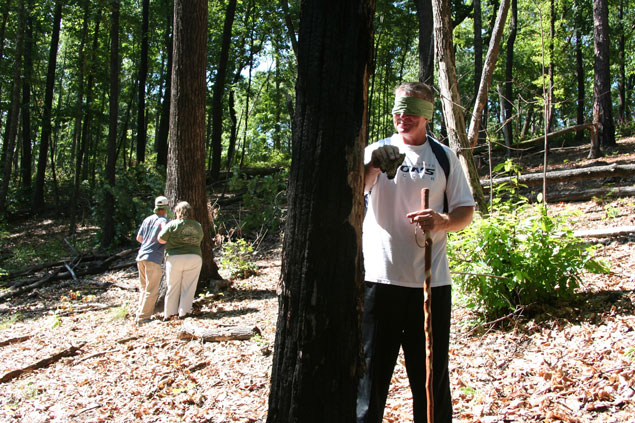
During a hands-on activity in a forest outside Moundville, students explore trees while blindfolded. Bert Patterson, foreground, notices that his tree and its bark feel, smell and sound unusual, then discovers that it was struck by lightning. “To me, that experience was about slowing down and tuning in,” says Patterson, an operations manager for FedEx in Gadsden, Ala. “Don’t be in such a hurry.”
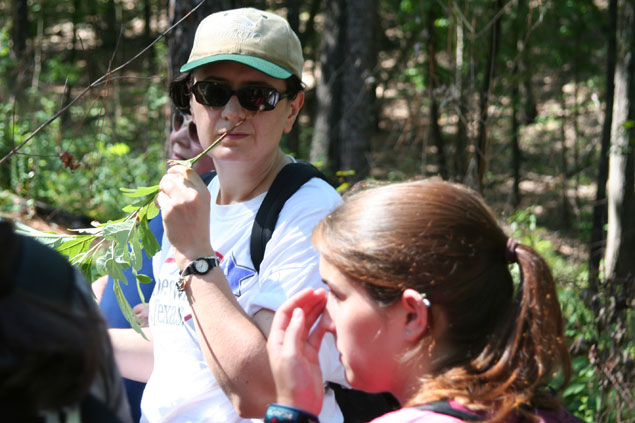
High on a west-facing slope, a teacher in the group sniffs a sassafras root, which can be used to make a spring tonic. “If you grew up in the backwoods, the smell will warm your heart,” Phillips says. Their walk in the woods also had lessons in the properties and uses of other native plants, including black cherry, scarlet buckeye, pines and oaks.”
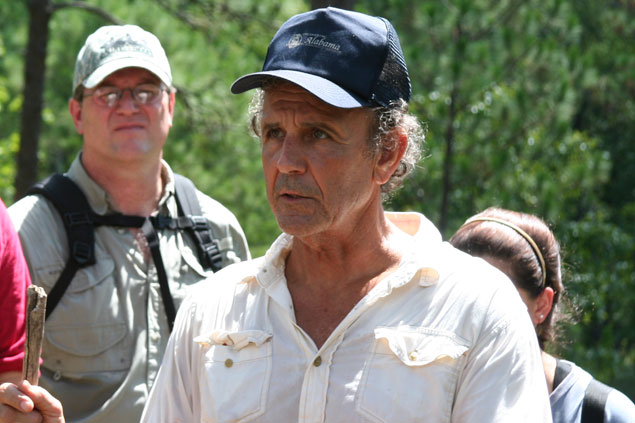
Phillips quietly leads the group to a stand of longleaf pines, then points out the den of an endangered red-cockaded woodpecker nearby.
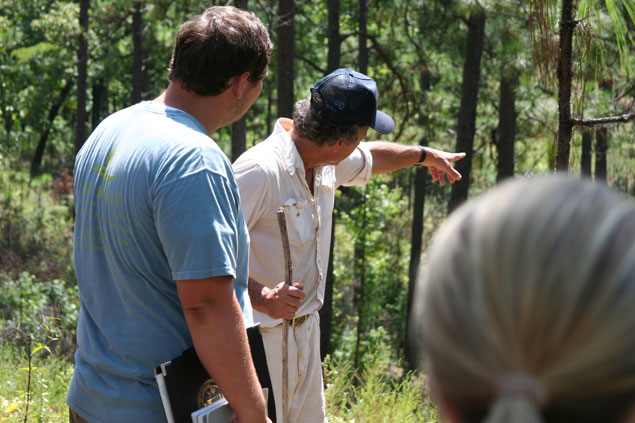
Photo by Christine Forrest
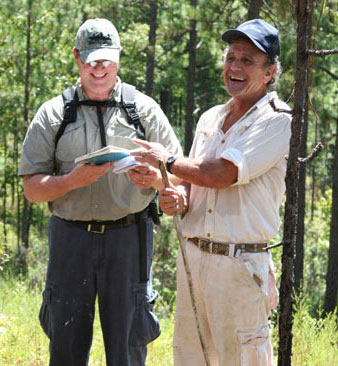
Phillips hands back a bird guide, sharing a laugh over the fact that there’s hardly any red on the red-cockaded woodpecker.

During a hands-on activity designed to teach about watersheds, small groups dig through the top several inches of soil in a 1-square-yard area.
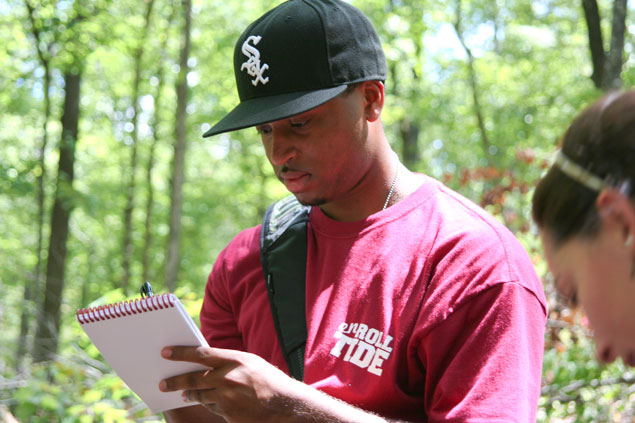
A student records what his group finds as they dig in the soil, which they discover is a living system.
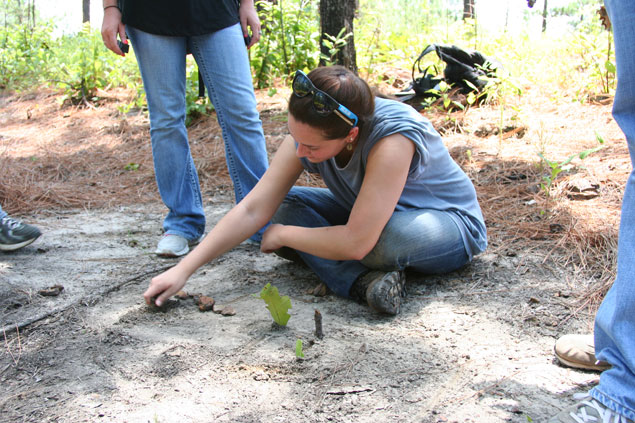
Fran Grappe, a pre-pharmacy student from Tuscaloosa, makes a three-dimensional map of her group’s route on their hike.
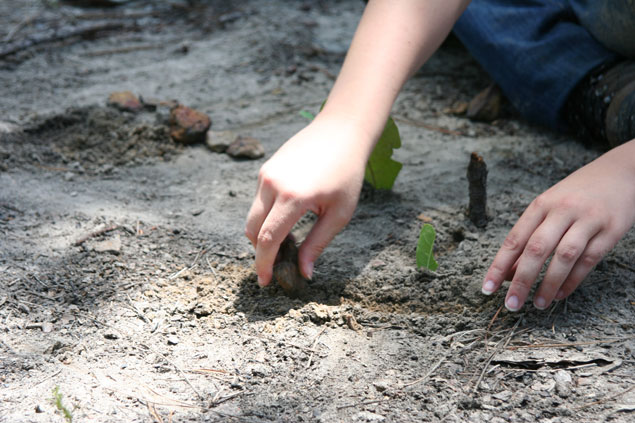
Grappe’s map is oriented to the cardinal directions and marks the locations of ridges, valleys and significant trees.
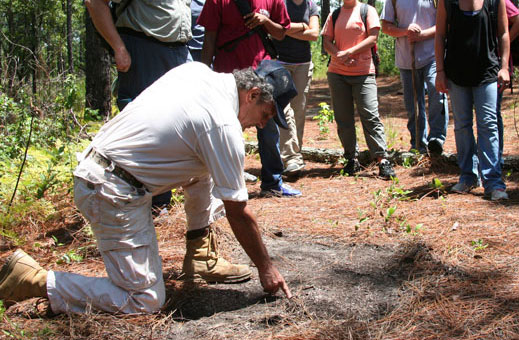
After looking over his students’ maps for accuracy, Phillips draws his own to show where they’ve been and how to navigate by nature’s signs, such as stream patterns, ridges and valleys, cloud movements and the growth habits of trees.
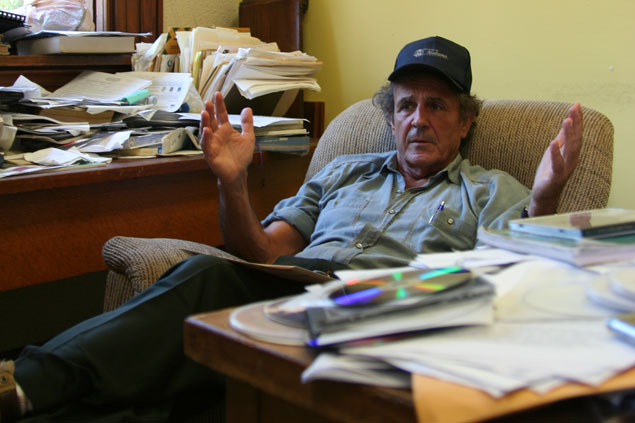
Back in his office in the Alabama Museum of Natural History, Phillips talks about his career as a television host, educator and policymaker. Next he plans to write about Alabama’s rural way of life for his third book, “Discovering Alabama Countryside.”